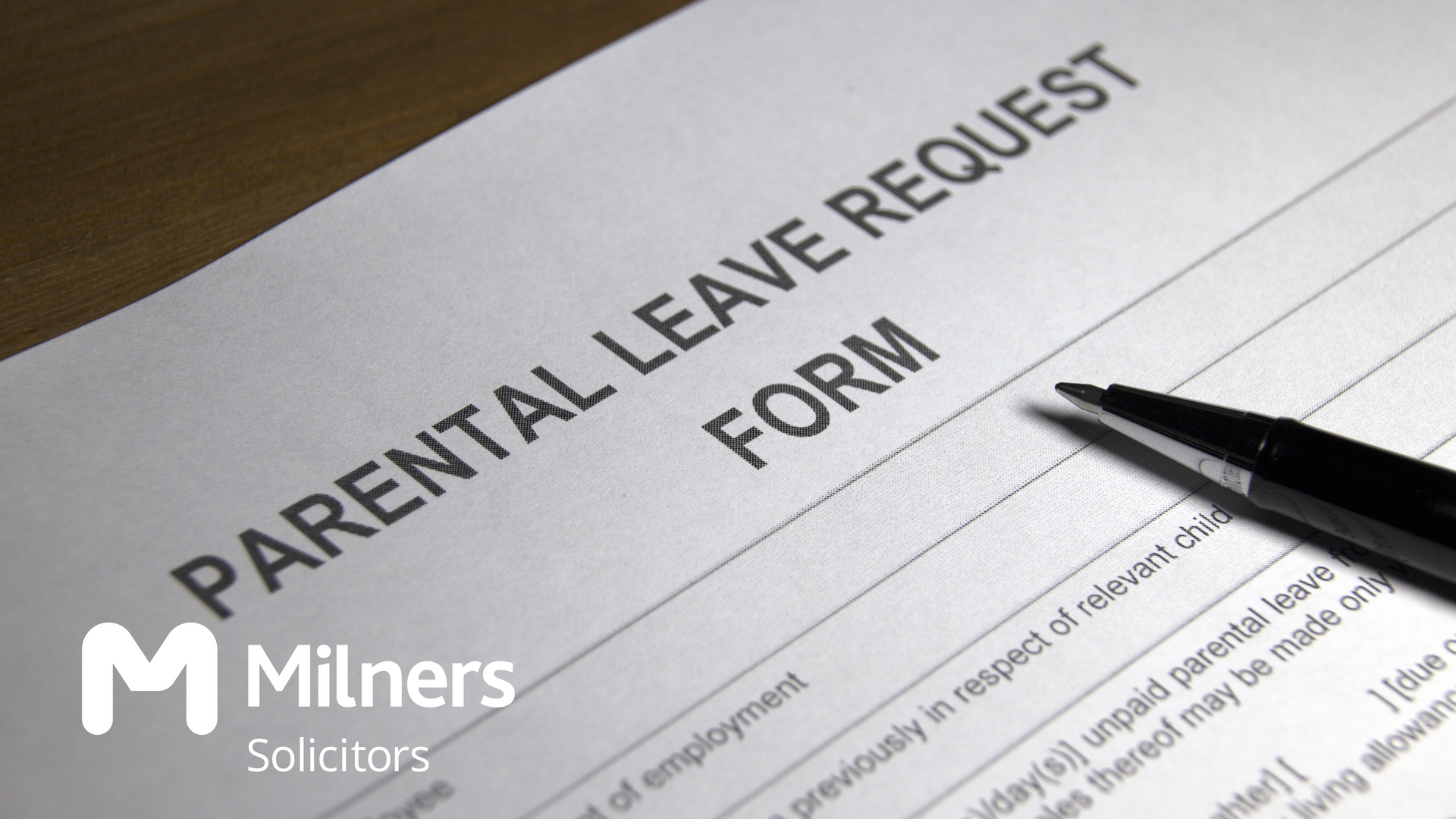As an employer, what do you need to know about unpaid parental leave? Learn more in our article about existing legislation and forthcoming changes.

If you work in HR, there's a broad range of topics you need to be on top of. One of these is unpaid parental leave.
Even if you're fully
au fait with the ins and outs of parental leave legislation, you've still got a little homework to do as changes to neonatal leave are afoot.
As with all
employment rights, it's important to have a good grasp of the issues – not just out of respect for your team, but also because you don't want to waste any time or money fighting your case in an employment tribunal.
In this guide, we go over the basics of unpaid parental leave and take a look at the forthcoming changes.
What is unpaid parental leave?
Unpaid parental leave isn't the same as paternity, maternity or shared parental leave. It's not about taking time off after a child's birth – rather, it's about taking leave to look after a child. And unlike paternity and maternity leave, it's unpaid.

Parents have a legal right to take time off to look after their children. Legally, a child is under 18. Your employees are entitled to take 18 weeks of leave per child. This can be used in one go or can be staggered over time – up to a maximum of four weeks a year.
Why might your employee request parental leave?
There are several scenarios in which a member of staff might request parental leave:
- The child is in hospital
- The child is changing schools
- The child needs support settling into a new childcare arrangement
- The child is visiting grandparents or other family members
What should you do when an employee takes parental leave?
The main thing to remember is that parental leave is not a resignation. All employees have a right to return once their leave is up. That means it's your responsibility to make alternative arrangements.
That could involve sourcing internal cover, training an existing member of staff or distributing the workload through your team.
Are your employee's rights affected by unpaid parental leave?
No. All employment rights are protected during parental leave. Any attempt to disregard them can land you in hot water.
Can parental leave be carried over from a previous job?
Yes. Parental leave allowance applies to your employee's child, not their current job.
That means that if your employee took five weeks of parental leave in a previous job, they can carry over 13 weeks into their current employment – once they've met the eligibility criteria by working for you for more than one year.
Who is eligible for parental leave?
Any parent is eligible so long as they've been on the payroll for more than a year and have parental responsibility.
Self-employed agency workers and contractors are excluded from parental leave, as are foster parents – except those who have secured parental responsibility through the courts.
Can you ask for proof of parental responsibility?
You can, but it's a delicate matter that needs to be handled with tact. If it's absolutely necessary, it should only be done once.
What are the legal rules on parental leave?
The issue of parental leave is covered by the
Parental Leave Regulations 2013:
- Employers are legally obliged to give staff time off for parental leave.
- There's no legal distinction between same-sex and heterosexual couples or between adoption and birth parents.
- Employees must give 21 days' notice.
- Parental leave must be taken as whole weeks, not individual days – although employers can be flexible. This doesn't apply if the child in question has a disability.
- It's against the law to dismiss or unfairly treat any employee who requests parental leave.
As with all employment rights, your policy needs to be unambiguously articulated in both your company policy and all employee contracts.
To make sure there's no room for misunderstanding, it can be advisable to seek legal guidance. Getting a contract lawyer to help with documentation can help avoid legal wrangling down the line.
Can you refuse or postpone parental leave?
You can only refuse or postpone parental leave if it would cause serious disruption to the business. How serious is serious? We're in string-measuring territory here – it's a judgment that requires thought and sensitivity.

You can't postpone an employee's requested parental leave if the postponement means they no longer qualify (if, for instance, it would be postponed until after the child's 18th birthday).
If you do choose to postpone it, you must explain why, in writing, within seven days of the request. You're also obliged to suggest a new state date that falls within six months of the requested date.
Is parental leave paid?
Parental leave is almost always unpaid – but it's worth checking employee contracts, company handbooks and leave policies if they were written before you took over the role.
What is the Neonatal Care (Leave and Pay) Bill?
This is a new piece of legislation that affects parental leave. It will provide a statutory right for 12 weeks of paid leave for parents of newborn babies who require neonatal care. This will be in addition to existing maternity, paternity and shared parental leave entitlements.
The bill was introduced by the SNP's Stuart McDonald and it reached Royal Assent on 24 May 2023.
The government's press release emphasises the positive impact that this bill will have on thousands of parents who need support during challenging circumstances.
The bill is unlikely to be implemented until 2025 so your employees won't be able to claim until then.
However, it's important to be on top of this change to the law. Any dismissal or unfair treatment in response to a request for neonatal care will be automatically viewed as unfair – and you could wind up in a tribunal.
Do you need legal support with regard to unpaid parental leave?
Get in touch for a free, no-obligation consultation. One of our
employment law experts will be glad to help.
![Judgment has been handed down this week in Transwaste Recycling and Aggregates Ltd [2024] EWHC 330 (](https://lirp.cdn-website.com/8f80b851/dms3rep/multi/opt/o+and+s-1920w.JPG)
Pontefract Office
9A High Street
Upton, Pontefract
West Yorkshire
WF9 1HR
Darlington Office
Close Thornton Solicitors
31 Houndgate
Darlington
DL1 5RH
Authorised and regulated by the Solicitors Regulation Authority – Milners, SRA # 52317 | VAT number: 170144301
All Rights Reserved | Milners Solicitors
Our branches
This is a paragraph. Writing in paragraphs lets visitors find what they are looking for quickly and easily.
This is a paragraph. Writing in paragraphs lets visitors find what they are looking for quickly and easily.
This is a paragraph. Writing in paragraphs lets visitors find what they are looking for quickly and easily.
This is a paragraph. Writing in paragraphs lets visitors find what they are looking for quickly and easily.
This is a paragraph. Writing in paragraphs lets visitors find what they are looking for quickly and easily.
Harrogate Office
11A Princes Square
Harrogate
North Yorkshire
HG1 1ND
01423 530 103
Darlington Office
Close Thornton Solicitors
31 Houndgate
Darlington
DL1 5RH
01325 466461
Pontefract Office
9A High Street
Upton, Pontefract
West Yorkshire
WF9 1HR
01977 644 864


Authorised and regulated by the SRA, SRA ID 52317
Get tips from our business and personal law legal experts. Delivered to your inbox each week.










